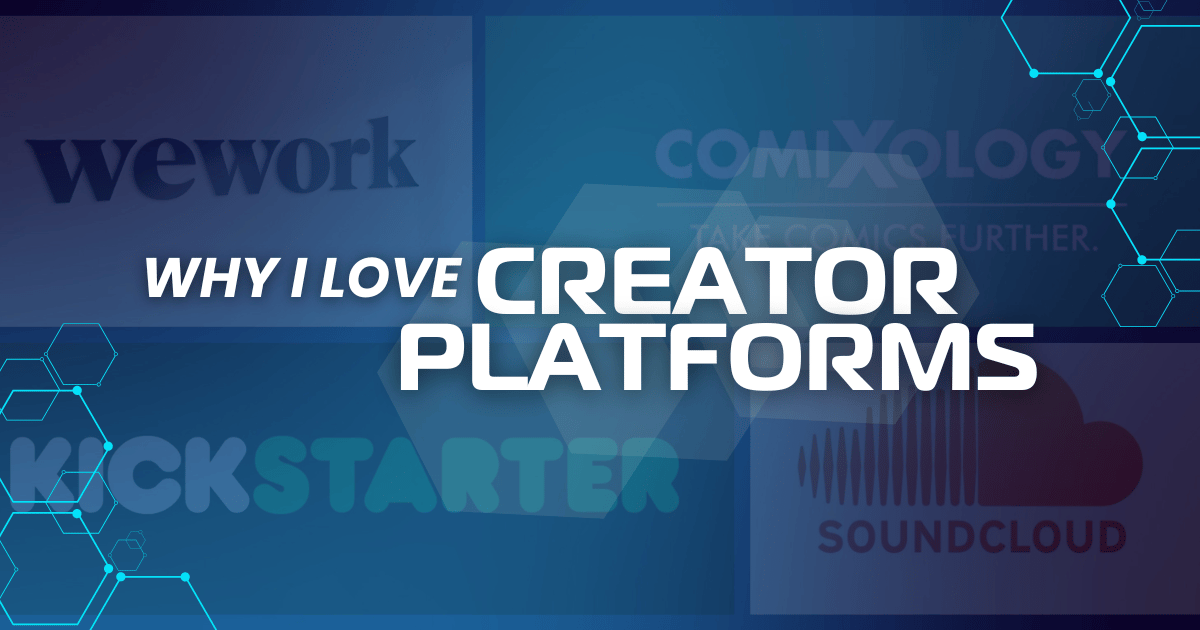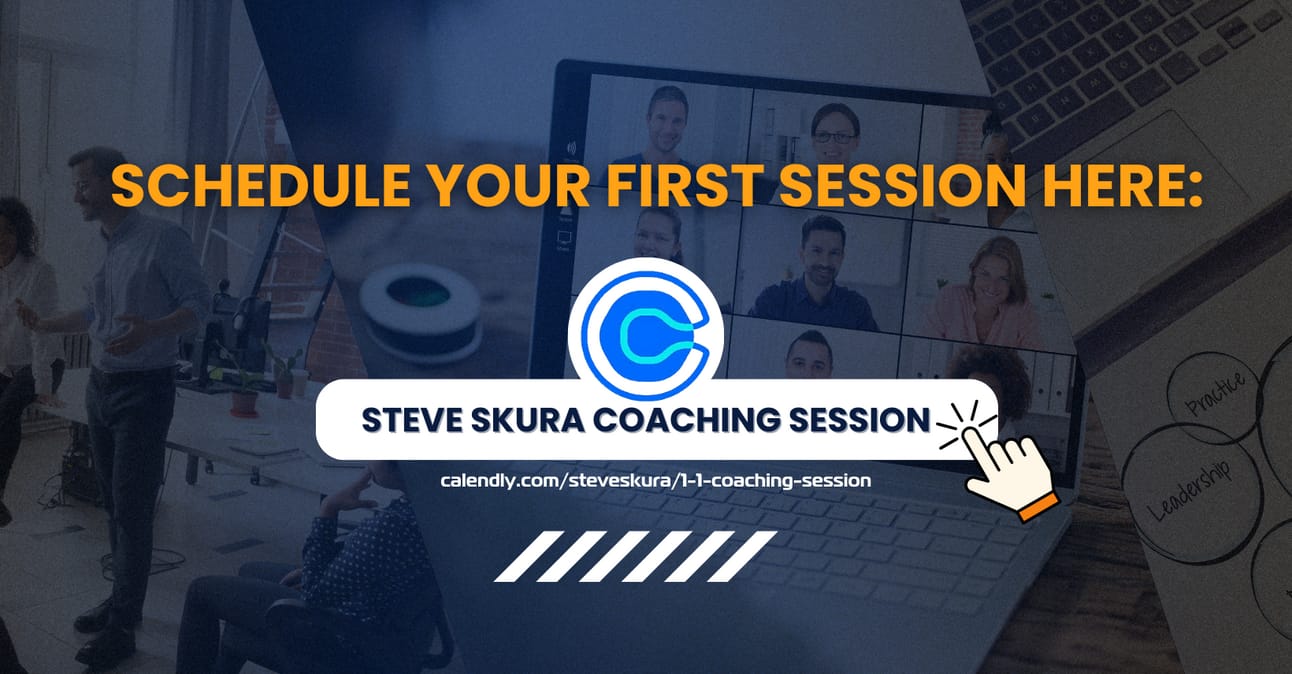- The Weekly Nugget
- Posts
- Why I Love Creator Platforms
Why I Love Creator Platforms
8 Companies that have done amazing things for indie creators.

I’ve always had a mind for business, and a love for building things. I get obsessed with companies that are unique and pro entrepreneur. Just in case you weren’t sure, by “entrepreneur” I don’t mean mega billion-dollar companies. I’m a big fan of platforms that focus on growing the success of indie creators, startups, and modern small businesses.
Platforms like Kickstarter, SoundCloud, Etsy, Discord, Twitch, Patreon, ComiXology, and WeWork have helped many launch their first creative project and get found by the masses. These platforms have been creative catalysts, helping transform ideas and a vision into reality. Platforms like these help remove barriers to entry in large markets, allowing creators to move from idea to minimum viable product (MVP) to gaining traction quickly.
Kickstarter is probably one of the most notable companies that does this very well. However, there are companies like SoundCloud and Etsy that are designed in a way that puts the entrepreneur and the indie creator first, ahead of billion dollar brands and already mega hits everywhere.
Here’s what I love about these 8 companies:
Since 2009, 23 million people have funded more than 264 thousand projects with $8.2 billion in funding. Kickstarter kind of started as an idea stage platform for crowdfunding indie creator and inventor projects.
Today, everything from new technology products, toys, comic books, board games, and more are launched on Kickstarter. Its also grown to become the place to launch a product or series again and again. Many creators on the platform are repeat creators, and Kickstarter has an enthusiastic and generous audience that wants to fund what are sometimes highly niche ventures.
SoundCloud is a Swedish-owned music streaming platform headquartered in Germany, and generated $310 million in revenue in 2023. SoundCloud is my favorite music platform for one reason, its algorithm. Most other platforms focus on suggesting to listen to the already mega hit songs, albums, and musicians.
On SoundCloud, as you search, discover, like songs, and follow artists - the algorithm will suggest similar artists. I’ve found that most of these suggestions are indie creators. Some of which might have hundreds of thousands or millions of followers, but many artists are just getting started and might have their first few great songs but a small following.
As someone who enjoys listening to new music (80’s, Techno/EDM, and Christian Music) I love this platform because I’m always finding new future hits. Also, as a fan I get to watch musicians as they grow in their career while supporting their music along their journey.
In 2014 Amazon acquired ComiXology for an undisclosed sum. Several years later it was merged with Amazon - moving comic book listings to the Amazon platform and eliminating the ComiXology Submit Program.
For those that don’t know, ComiXology had been largely selling big publisher comic books from Marvel, DC, and Image. However, in 2013 they launched the Submit Program that helped so many indie creators publish their comic book project digitally, and gain initial traction as an independent creator.
As a creator, I launched my indie comic book series through the ComiXology Submit Program and sold on the platform up until its end in 2021. At the time, ComiXology was the #1 digital comic book platform with more than 70% market share. Even though digital was only about 15% of total comic book industry sales, in a way it provided a proving ground for some comic book creators.
The Submit Program provided a way for creators to submit their work to ComiXology, if approved, self publish and get 50% of their comic book sales. For me, this was only a few hundred dollars per quarter at the peak, but it was an exciting way to launch independently. This combined with Comic Con, Kickstarter, and book signing events helped me almost break-even as a creator.
For a few thousand dollars, a person could create their own story and publish it. I imagine this program wasn’t as lucrative for them as selling higher volume Marvel issues, but I hope Amazon or another platform fills this gap for indie comic book creators soon.
WeWork at its peak was a $47 billion Unicorn and went from boom to bust in a matter of years. However, it still is remembered by marketers like me as a brand that re-invented the boring co-working experience.
WeWork successfully re-imagined the co-working space as a community with varying levels of access (floating desks, shared spaces, varying levels of office space) empowering entrepreneurs of any status to have a space to work and be part of a community. Many office spaces had great locations, views, free snacks and beverages, and an overall fun ambiance and experience.
Although, WeWork has never made a profit, it has recently restructured and emerged from bankruptcy. I imagine working from one of their co-working spaces some day in the future.
Another creator focused platforms that excites me is Etsy for their focus on creator-driven niche-ecommerce and focus on small business. The Twitch platform is built around tools like paid subscribers, tips/donations, paid ads and sponsors for influencers to monetize their video gaming audience. The future is happening now with Discord’s community building tools in the gaming industry. Discord is like having a Facebook group on steroids. Tons of features for different levels of membership and ability to grow your access within the community group as you become more of a fan (and meet people). As a indie video game creator, this platform is ideal for building your community and growing your business. Patreon is a favorite platform for many musicians, writers, artists, and influencers who want to build and monetize their community. Patreon has lots of built in features to build your side hustle.
If you’re not familiar with these brands, I challenge you to take a look at where you spend your money and consider a company that is promoting American owned small business, startups, and entrepreneurs. They are the backbone of job creation and financial freedom in America, and its important that we support their ventures when it makes sense for us as consumers.
